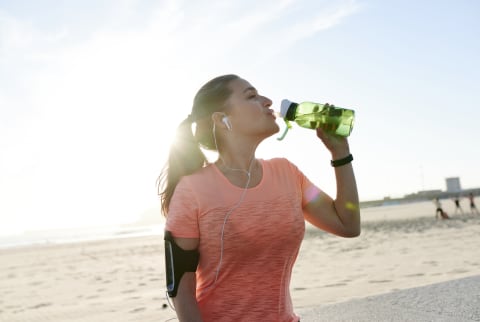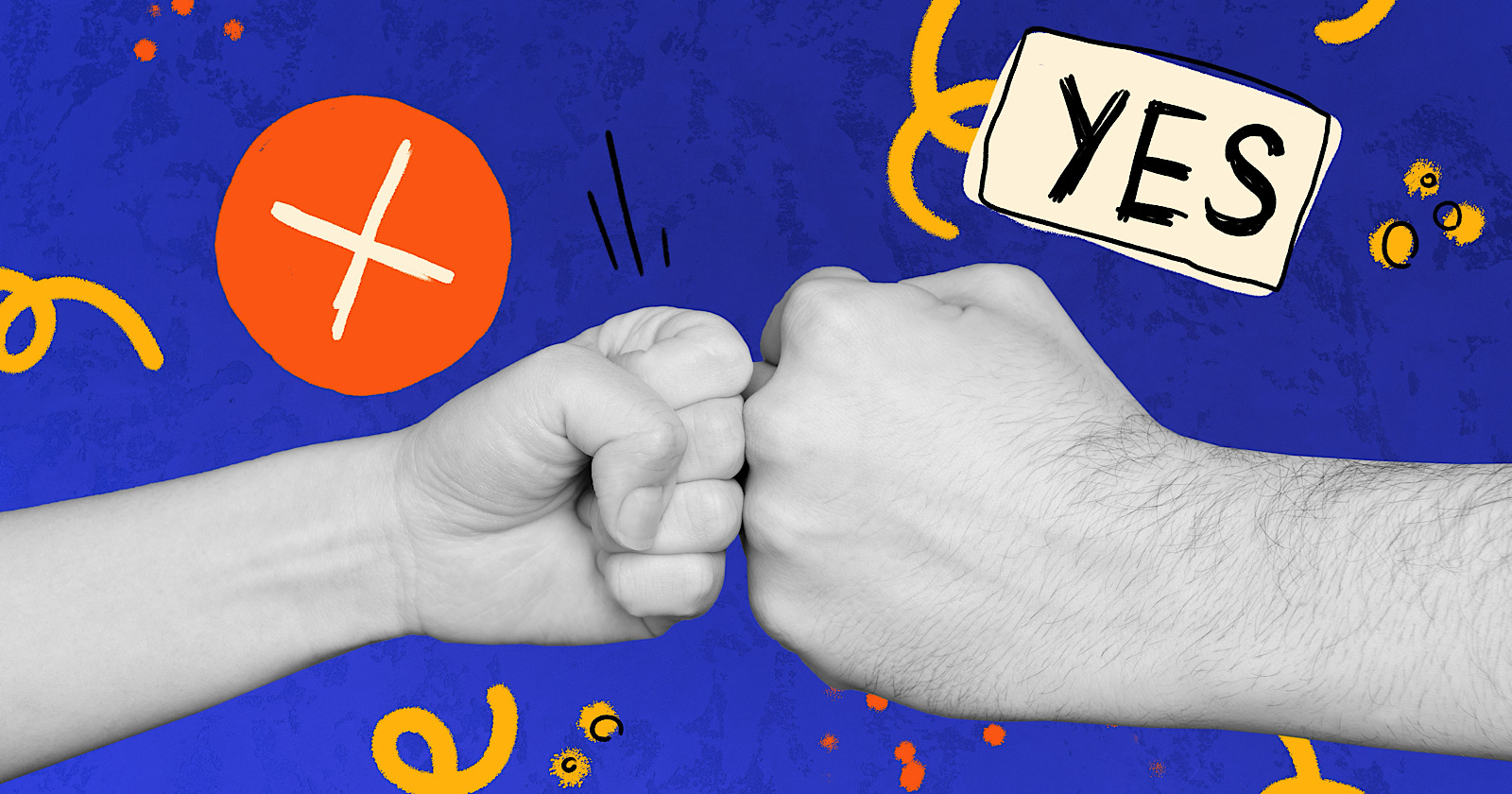5 Signs Your Body Is Begging You For More Electrolytes
Plus, how to easily refuel.

Image by Ivan Gener / Stocksy July 12, 2024 We carefully vet all products and services featured on mindbodygreen using our Our selections are never influenced by the commissions earned from our links. Have you ever wondered why you get so thirsty after a tough workout or an afternoon in the sun? Anytime you work up a sweat, your body loses some of the fluid that keeps it hydrated. That depletion puts you at risk for dehydration, which means replenishments are vital. Drinking plenty of water is the obvious solution, but if you can get your hands on some H2O that's been fortified with electrolytes, even better. 
Why are electrolytes important?
The term "electrolytes" has become something of a buzzword in the fitness and health space. You've likely heard of them from a trainer or wellness enthusiast, but what are electrolytes and what do they do for the body?
To put it simply, leading functional medicine physician Bindiya Gandhi, M.D. tells mindbodygreen that electrolytes are a category of electrically charged essential minerals the body both produces and derives from food and beverages. Minerals like calcium, magnesium, potassium, phosphate, chloride, and sodium are all examples of important electrolytes.
According to Gandhi, electrolytes are vital to sustaining a healthy body and mind as they "balance our fluid levels, maintain our blood pH, help to keep our muscles, nerves, heart, and brain cells working, help to transport nutrients to our cells, and excrete toxins out of our cells." In other words, they're more than post-workout fuel.
5 signs your body needs more electrolytes
In the same way your body lets you know if you aren't getting enough protein, fiber, or virtually any macro or micronutrient in your diet, when your body needs electrolytes, it's going to send out an SOS.
These are the top five signs your body needs more electrolytes, according to experts.
1.
Your muscles are weak or cramping
Electrolytes aid in proper muscle function, so if you're experiencing muscle weakness and/or muscle cramps1, registered dietician Dan Gallagher warns your body likely needs a restock on these essential nutrients. "When you're active, your body uses its store of these nutrients" Gallagher explains, "so you need to replenish them regularly."
If you notice you've been feeling sensitive or more irritable than usual, dietitian Susan Schachter, MSRDN, says a lack of electrolytes could be the culprit. “Electrolyte imbalances can sometimes affect brain function,” Schachter explains, “resulting in mood swings2, irritability, or even mental confusion."
Feeling nauseous or experiencing GI issues? Ellen Landes, MS, RDN, aka The Runner's Dietitian, warns this, too, could be a sign your body needs more electrolytes. "A lot of runners I've worked with have experienced nausea at the end of or after runs," Landes notes. "We've worked on adding more sodium before, during, and after runs to alleviate it.
4.
Your sodium levels are down
In severe cases of an electrolyte deficit, Landes says some might experience hyponatremia, a condition of low sodium. "This can happen if someone is drinking plenty of fluids but not replacing the sodium lost through sweat," Landes explains.
However, hyponatremia is a serious medical condition, one Landes says could cause lethargy, mental confusion, nausea, muscle weakness, "and in very severe cases, even death." If you experience any of these symptoms, it's important to talk to your doctor.
5.
Your heartbeat is abnormal
If you needed any more proof that electrolytes are vital to your health and wellness, this is it. According to functional medicine registered dietitian and women's health specialist Sam Schleiger MS, CLT, IFNCP, electrolytes such as potassium and calcium play a major role in maintaining proper heart rhythm, and an imbalance can lead to "irregular heart rhythms, palpitations, or a rapid heartbeat."
Schleiger warns, "Severe electrolyte imbalances can even pose serious risks to heart health," so you want to make sure your electrolyte levels are at their most optimal, at all times. Check in with your doctor if you're unsure about yours.
3 ways to get more electrolytes
The takeaway
Electrolytes are as essential as any other vitamin or mineral and therefore should be incorporated into your daily routine.
Unfortunately, certified personal trainer Mary Sabat, MS, RDN, LD tells mindbodygreen that most people aren't getting enough electrolytes daily, as "the typical American diet is devoid of many of these micronutrients."
Look out for these five tell-tale signs your body could use more electrolytes so that you can better use food, drinks, and supplements to meet your daily needs.

 Fransebas
Fransebas 

































![35-year-old American moved to Chengdu and lives on $30,000 a year: '[It's] poverty in America, but in China I'm living large'](https://image.cnbcfm.com/api/v1/image/108167583-1751548516689-chinacelia1.jpg?v=1751549197&w=1920&h=1080)